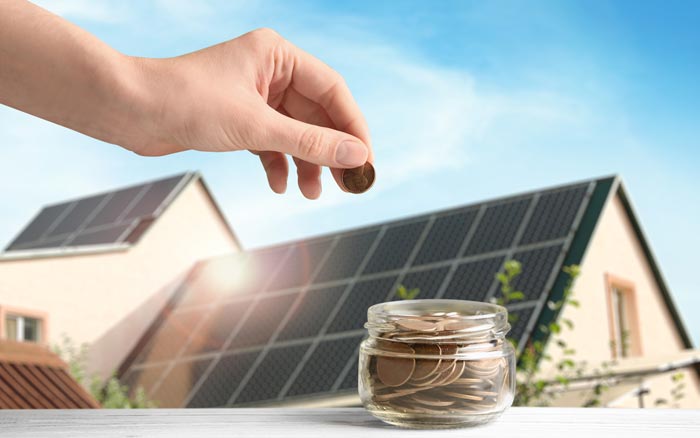As the world becomes increasingly conscious of the need for sustainable energy solutions, solar panels have emerged as a popular choice for homeowners. In a recent article by Forbes titled “How Much Do Solar Panels Save The Average Homeowner?” they explore the factors that influence the savings and costs associated with solar panels.
Understanding the Upfront Costs:
It’s important to recognize the upfront costs associated with solar panel installations. Homeowners should consider factors such as the size of the system, the type of panels, and the complexity of the installation process. According to the article, the average cost of solar panels with installation ranges from $13,000 to $20,000 for a 6-kW system. However, it is essential to note that costs can vary depending on the state and specific requirements of each home.
Solar Tax Breaks and Incentives:
To alleviate the initial costs of installing a solar system, homeowners can take advantage of various incentives and tax breaks. Thhe Federal Tax Credit (2022) offers up to a 26% rebate on the price of a new solar installation. Additionally, the Database of State Incentives for Renewables & Efficiency provides a valuable resource for homeowners to discover additional discounts available within their respective states. These incentives play a significant role in making solar panel installations more affordable and financially attractive.
Factors Influencing Savings:
The Forbes article rightly points out that several key factors influence the potential savings generated by solar panels. Understanding these factors is crucial for homeowners to make informed decisions. The article highlights the following key considerations:
- Local Grid Prices: Electricity prices vary from region to region. Analyzing local power costs is essential in estimating potential savings.
- Number, Efficiency, and Type of Panels: The type of panels, their efficiency, and the number of panels installed impact the overall savings. Researching and comparing different panel manufacturers and installation companies can help homeowners determine the best fit for their homes.
- Average Sun Exposure and Climate: The number of daylight hours and local climate conditions affect the amount of power solar panels can generate. Areas with ample sunlight will produce electricity more reliably and efficiently. Latitude and seasonal variations also play a role in determining the energy output of solar panels.
- Household Energy Usage: The size of the house and the energy consumption patterns of the household directly influence the amount of energy required from the solar system. Higher energy consumption necessitates greater energy production to offset grid electricity consumption.
- Net Metering: Net metering policies allow homeowners to sell excess electricity back to the grid, further reducing monthly power bills. The potential savings from net metering vary by location and depend on the specific utility company serving the area.
Calculating the Payback Period:
One of the key considerations for homeowners contemplating solar panel installations is the payback period. This period refers to the time it takes for the energy savings generated by the solar panels to offset the initial investment cost. The article suggests that the average payback period for solar panels typically ranges from five to ten years. However, this timeframe can vary based on factors such as the initial cost, sunlight exposure, local energy prices, available incentives, and financing options. Homeowners can calculate their own payback period by dividing the total cost of installation by the annual energy cost savings.
Long-Term Savings and Environmental Impact:
While immediate savings can be seen on the first power bill after installing a solar system, long-term savings are significant. The Forbes article estimates that homeowners with robust solar systems can save up to $1,500 per year, resulting in potential savings ranging from $25,500 to $33,000 over the lifespan of the system. Moreover, by investing in solar energy, homeowners contribute to reducing their carbon footprint and promoting a cleaner and more sustainable future.
Summit Energy: A MA Solar Company Fighting To Make Solar Energy Affordable for Everyone.
Summit Energy is dedicated to breaking the affordability barrier and ensuring that solar energy is accessible to all. By embracing the latest technologies, navigating government incentives, and empowering individuals, we pave the way for a future where solar energy is the most viable and cost-effective energy option. Join us in embracing a sustainable and affordable energy revolution, where clean power is within everyone’s reach.

